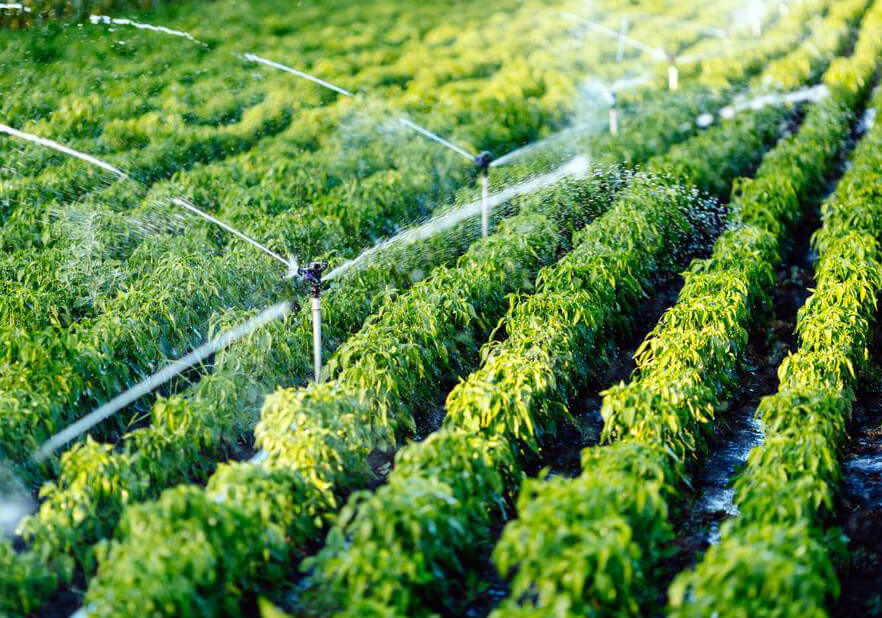
In the world of agriculture, efficient irrigation practices are crucial for the sustainability of our environment. With water scarcity becoming an increasingly pressing issue, it is essential for irrigation companies to adopt eco-friendly methods to ensure the longevity of our water resources. In this article, we will explore the sustainable practices of leading irrigation companies that prioritize efficiency and environmental responsibility.
1. Use of Drip Irrigation Systems
Drip irrigation is a method of watering plants by applying water directly to the roots, minimizing water wastage and evaporation. Leading irrigation companies have embraced this technology for its efficiency and effectiveness in delivering water where it is needed most. Some key benefits of drip irrigation systems include:
Benefits of Drip Irrigation:
- Reduces water usage by up to 50% compared to traditional irrigation methods
- Promotes healthier plant growth by providing a consistent water supply
- Minimizes weed growth and soil erosion
- Reduces the risk of water runoff and nutrient leaching
2. Implementation of Smart Irrigation Controllers
Smart irrigation controllers utilize weather data and soil moisture sensors to adjust watering schedules based on real-time conditions. Leading irrigation companies have integrated these controllers into their systems to optimize water usage and conserve resources. The advantages of smart irrigation controllers include:
Advantages of Smart Irrigation Controllers:
- Prevents overwatering by adjusting watering times according to weather conditions
- Reduces water waste by avoiding irrigation during rainy or windy weather
- Saves time and labor by automating irrigation schedules
- Improves plant health by delivering the right amount of water when needed
3. Utilization of Water-Efficient Irrigation Technology
Leading irrigation companies are investing in water-efficient technology to minimize water wastage and improve overall system performance. By utilizing advanced irrigation techniques, these companies are able to achieve significant water savings while maintaining the health and vitality of crops. Some examples of water-efficient irrigation technology include:
Examples of Water-Efficient Technology:
- Low-flow irrigation systems that deliver water at a slow and steady rate
- Pressure regulation devices to ensure consistent water distribution throughout the system
- Soil moisture sensors that monitor moisture levels and adjust watering accordingly
- Precision irrigation tools such as drip tape and micro-sprinklers for targeted watering
4. Adoption of Sustainable Irrigation Practices
In addition to implementing water-efficient technology, leading irrigation companies are adopting sustainable practices to reduce their environmental impact and promote long-term sustainability. These practices focus on minimizing energy consumption, using recycled materials, and incorporating organic farming principles into irrigation systems. Some key sustainable irrigation practices include:
Key Sustainable Practices:
- Use of solar-powered irrigation systems to reduce reliance on fossil fuels
- Recycling of wastewater for irrigation purposes
- Integration of cover crops and crop rotation techniques to improve soil health
- Implementation of integrated pest management strategies to reduce chemical usage
5. Commitment to Continuous Improvement and Innovation
Leading irrigation companies understand the importance of staying ahead of the curve when it comes to sustainable practices. By committing to continuous improvement and innovation, these companies are able to develop new technologies and techniques that further enhance the efficiency and eco-friendliness of their irrigation systems. This dedication to innovation ensures that they remain at the forefront of the industry and set the standard for sustainable irrigation practices.
Focus on Continuous Improvement:
- Investing in research and development to discover new ways to conserve water and energy
- Collaborating with industry partners and experts to share knowledge and best practices
- Evaluating and updating irrigation systems regularly to incorporate the latest advancements in technology
- Training employees on sustainable practices and encouraging a culture of environmental stewardship
By prioritizing efficiency and eco-friendliness in their irrigation practices, leading companies are not only reducing their environmental impact but also setting an example for the industry as a whole. Through the adoption of sustainable technologies and practices, these companies are paving the way for a more sustainable future for agriculture and water resource management.